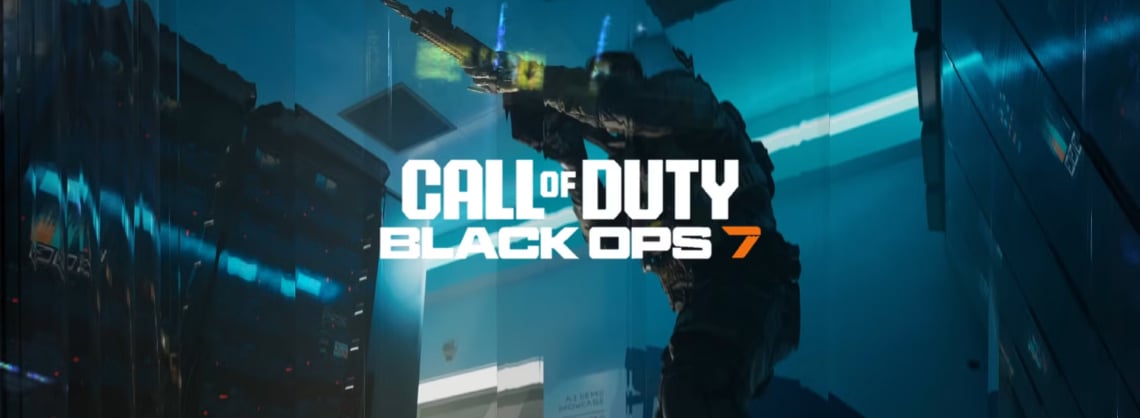
Related Stories
As Call of Duty: Black Ops 6 winds down, fans are already setting their sights on what’s next. With the official reveal of Black Ops 7 expected at Gamescom in August and a reported release date of November 14, 2025, the transition between the two titles is shaping up to be one of the most strategic handoffs in franchise history. But Black Ops 6 isn’t going quietly — it’s leaving behind a legacy of innovation, controversy, and foundational groundwork for what comes next.
A High Ceiling, but a Short Window
When Black Ops 6 launched in late 2024, it was heralded as the most ambitious game in the Black Ops series. Omnimovement, a revamped Zombies structure, and a Gulf War-era campaign gave the game its own distinct voice. However, despite critical acclaim and strong initial numbers, community interest began tapering off by mid-2025. According to SteamDB, player counts dipped by over 60% within six months.
While some point to “crossover fatigue” and a heavily monetized seasonal model as culprits, others argue the game served its purpose: to push boundaries, test features, and gather community feedback for a larger leap forward.
What Black Ops 6 Set in Motion
1. Omnimovement & Gunplay Overhaul
BO6 introduced the ability to move seamlessly in any direction — including turning while prone — creating a more kinetic flow in multiplayer. This system is confirmed to return in BO7, albeit with more refined traversal mechanics and rumored exo-assisted sprints for verticality.
2. Directed Zombies & Mode Experimentation
BO6’s Zombies mode introduced “Directed Mode,” a narrative-focused experience that streamlined questing. This was widely praised for making Zombies more accessible without diluting the core survival thrill. Developers at Treyarch have teased that BO7 will expand this format into a more open-ended PvE co-op structure — hinting at “Zombies Raids.”
3. Cross-Media Integration
BO6 heavily embraced IP crossovers — from American Dad to John Wick and Squid Game. While some fans criticized these for straying too far from realism, the numbers didn’t lie: bundles tied to recognizable IPs outperformed original cosmetics by 3:1 in Season 3. BO7 is expected to build on this with licensed campaign cameos and live event tie-ins.
What We Know About Black Ops 7
Leaks and insider sources suggest that Black Ops 7 will:
-
Return to a near-future setting, blending espionage with cyber-warfare.
-
Feature a persistent multiplayer “hub” that blends Warzone, Ranked, and Zombies in one unified progression system.
-
Introduce a "Social AI" system that personalizes combat bots and NPC reactions based on playstyle data from BO6.
Perhaps most importantly, BO7 is expected to serve as a soft reboot of the Black Ops storyline. Canonical ties to Frank Woods, Hudson, and Adler will reportedly take a back seat to a new cast navigating the blurred lines between intelligence agencies and digital warfare.
A Community Split
The shift from Black Ops 6 to 7 has created a divide in the community:
-
Hardcore BO6 fans feel the game never got the seasonal support it deserved, especially compared to Warzone.
-
Zombies loyalists appreciate BO6's foundational work, but feel it’s being “sunset too early.”
-
Competitive players, especially those on platforms like Checkmate Gaming, are eagerly awaiting new Ranked mechanics and anti-cheat systems promised in BO7.
It’s a rare moment in the franchise where the old and new feel this close together — yet also this different.
Conclusion: A Relay Race, Not a Replacement
Black Ops 6 is not fading into obscurity; it’s handing the baton to Black Ops 7. The innovations it introduced — both praised and polarizing — are not being discarded but refined. In many ways, BO6 was the prototype for a modern era of Call of Duty that blends realism, storytelling, competitive integrity, and pop culture chaos.
Whether Black Ops 7 can live up to that promise will depend on how well it learns from its predecessor — not just in design, but in how it treats its players.


